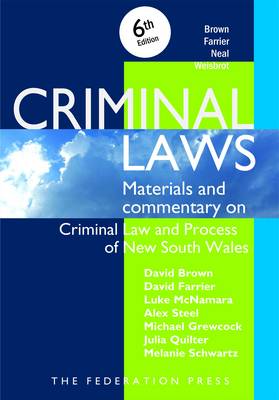 In Canada, a criminal record just isn’t issued when a person is acquitted of against the law that they were charged with. So what is it that the State must show in an effort to maintain the defendant from being admitted to bail and then being able to bond out in the course of the pre-trial course of? The State must prove that the offense is a capital offense i.e., capital or first degree intentional murder (could also be punished by the dying penalty); and capital sexual battery (sexual penetration on a baby under 12 years previous). Or, the State must prove that the offense is one that is punishable by life imprisonment. These very severe offenses are listed in Florida Statute section 907.041. Once the State proves that the charged offense is either a capital offense or one punishable by life imprisonment, then the State has the burden to show that the proof is clear or the presumption is great. If the State fails to prove this stuff, the defendant is entitled to affordable bail as a matter of legislation.
In Canada, a criminal record just isn’t issued when a person is acquitted of against the law that they were charged with. So what is it that the State must show in an effort to maintain the defendant from being admitted to bail and then being able to bond out in the course of the pre-trial course of? The State must prove that the offense is a capital offense i.e., capital or first degree intentional murder (could also be punished by the dying penalty); and capital sexual battery (sexual penetration on a baby under 12 years previous). Or, the State must prove that the offense is one that is punishable by life imprisonment. These very severe offenses are listed in Florida Statute section 907.041. Once the State proves that the charged offense is either a capital offense or one punishable by life imprisonment, then the State has the burden to show that the proof is clear or the presumption is great. If the State fails to prove this stuff, the defendant is entitled to affordable bail as a matter of legislation.
Many artists and studios are upset with the decline in music sales. They’re attributing this decline to people who find themselves violating copyright legal guidelines by downloading music on the Internet. Music files are under the identical copyright legislation as music recordings and the owners of those copyrights are entitled to royalties or compensation for the music that individuals are illegally downloading on the Web.
the applicable punishment is deprivation of liberty for a period of two years and as much as ten years, with or without confiscation of property and with probationary supervision for a interval up to three years. the applicable punishment is a brief deprivation of liberty or group service, or a tremendous. Officials additionally launched a threat and wishes evaluation software, which is supposed to measure a prisoner’s chance of committing new crimes. The tool expands on a safety evaluation tool already in place throughout the Bureau of Prisons that helps to predict inmate misconduct, Hurwitz said.
Except a crime is a strict legal responsibility crime (which means that no specific mental state is required), statutes usually break crimes down into two parts: an act (the actus reusâ€) and a psychological state (mens reaâ€), similar to knowingly or recklessly. In an effort to be convicted of a criminal offense, a prosecutor should show that the defendant has met each of those parts. For example, larceny is the taking of the property of one other with the intent to deprive them of it completely. Thus, the defendant must have dedicated the act of taking the property and have completed so with the psychological intention to take the property of one other (as opposed to believing that the property belonged to him).
the relevant punishment is deprivation of liberty for a period as much as eight years, with or without the confiscation of property and with deprivation of the proper to engage in specific employment or to take up a particular workplace for a period up to five years. the relevant punishment is deprivation of liberty for a period of as much as seven years, with or with out confiscation of property and with or with out probationary supervision for a interval of as much as three years.